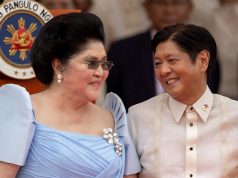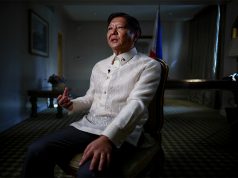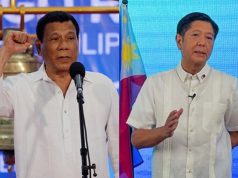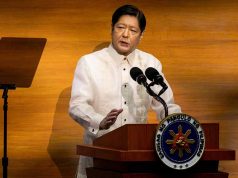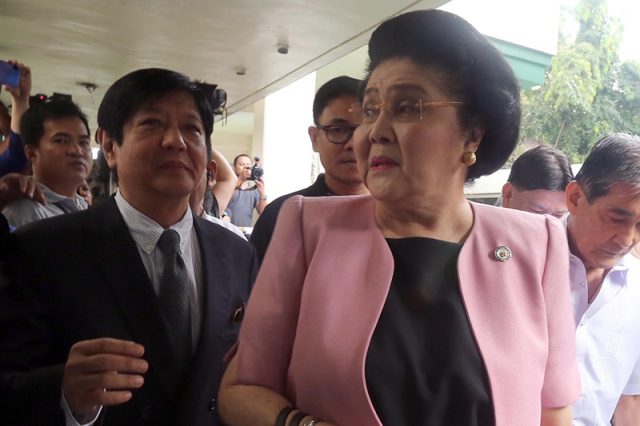
President Ferdinand “Bongbong” Marcos Jr. was able to visit the United States because of a “temporary immunity” brought by an extension of his contempt charge.
Former PCGG Commissioner Ruben Carranza made this explanation on social media during Marcos’ first US state visit on September 18.
Marcos Jr. and his mother Imelda are facing a 1995 contempt charge in the US in relation to a human rights class suit filed against his late father former President Ferdinand Marcos Sr.
The judgment, however, has not been enforced. In 2011, the penalty amounted to $353.6 million.
At Google’s exchange rate, $353.6 million equals around P20 billion.
Why can Marcos Jr. roam free in the US?
Carranza cited a US Court ruling that granted Marcos Jr. an extension on his US contempt charge until January 25, 2031.
This decision thus gave him “temporary immunity.”
“’Temporary immunity?’ Yes, because the contempt judgment against Marcos Jr. and Imelda Marcos for refusing to pay dictatorship victims has been extended until January 2031,” Carranza said.
The former PCGG official also accompanied his post with screenshots of the court decision.
This can be viewed for free here: USCOURTS-hid-1_03-cv-11111-1.pdf (govinfo.gov).
“Temporary immunity”? Yes, because the contempt judgment against Marcos Jr and Imelda Marcos for refusing to pay dictatorship victims has been extended until January 2031 pic.twitter.com/iv6AmjuEOi
— Ruben Carranza (@RCarranza_) September 18, 2022
In the court document, the US Court granted the Plaintiff Class of Human Rights Victims their motion to extend the judgment on contempt against Imelda and Marcos Jr. until January 25, 2031.
The initial date of the judgment order had already expired on February 3, 2005.
This extension, therefore, warrants Imelda and Marcos Jr. to pay the sanction worth $353.6 million.
“Judgment is entered in favor of the Plaintiff Class and against Imelda R. Marcos, Ferdinand R. Marcos and the Estate of Ferdinand E. Marcos, jointly and severally, in the amount of $353,600,000.00,” part of the contempt reads.
This extension will also allow the Plaintiff Class to collect the penalty from the Marcos family.
“The judgment is compensatory and in favor of the Plaintiff Class since the Class has been prevented from collecting on its original judgment (and judgments registered in other states) in an amount well in excess of the amount of this judgment,” part of the contempt reads.
In his post, Carranza also said that Imelda could also be facing charges in the US because of an art scheme her personal aid was previously involved in.
Marcos trolls keep repeating Imelda Marcos’ 1990 NY acquittal for racketeering [the NY prosecutor’s evidence was vs Marcos Sr who died]. So why isn’t she joining Marcos Jr in NYC? Because she has no immunity for contempt AND could conceivably still face new charges for this: pic.twitter.com/H2ahcWClWx
— Ruben Carranza (@RCarranza_) September 18, 2022
In 2013, the Marcos matriarch’s personal secretary was convicted of conspiracy and other charges in relation to selling art that Imelda had acquired during Marcos Sr.’s presidency.
What about diplomatic immunity?
During election season, Marcos Jr.’s camp evaded questions about whether or not he could go there despite the ongoing case.
US Deputy Secretary of State Wendy Sherman previously stated his election as the Philippine president grants him diplomatic immunity.
This gives him temporary freedom in the US.
“The fact is when you are head of state, you have immunity in all circumstances and are welcomed to the United States in your official role,” Sherman was quoted in a report as saying.
Diplomatic immunity, however, only covers the president himself and not his family.




